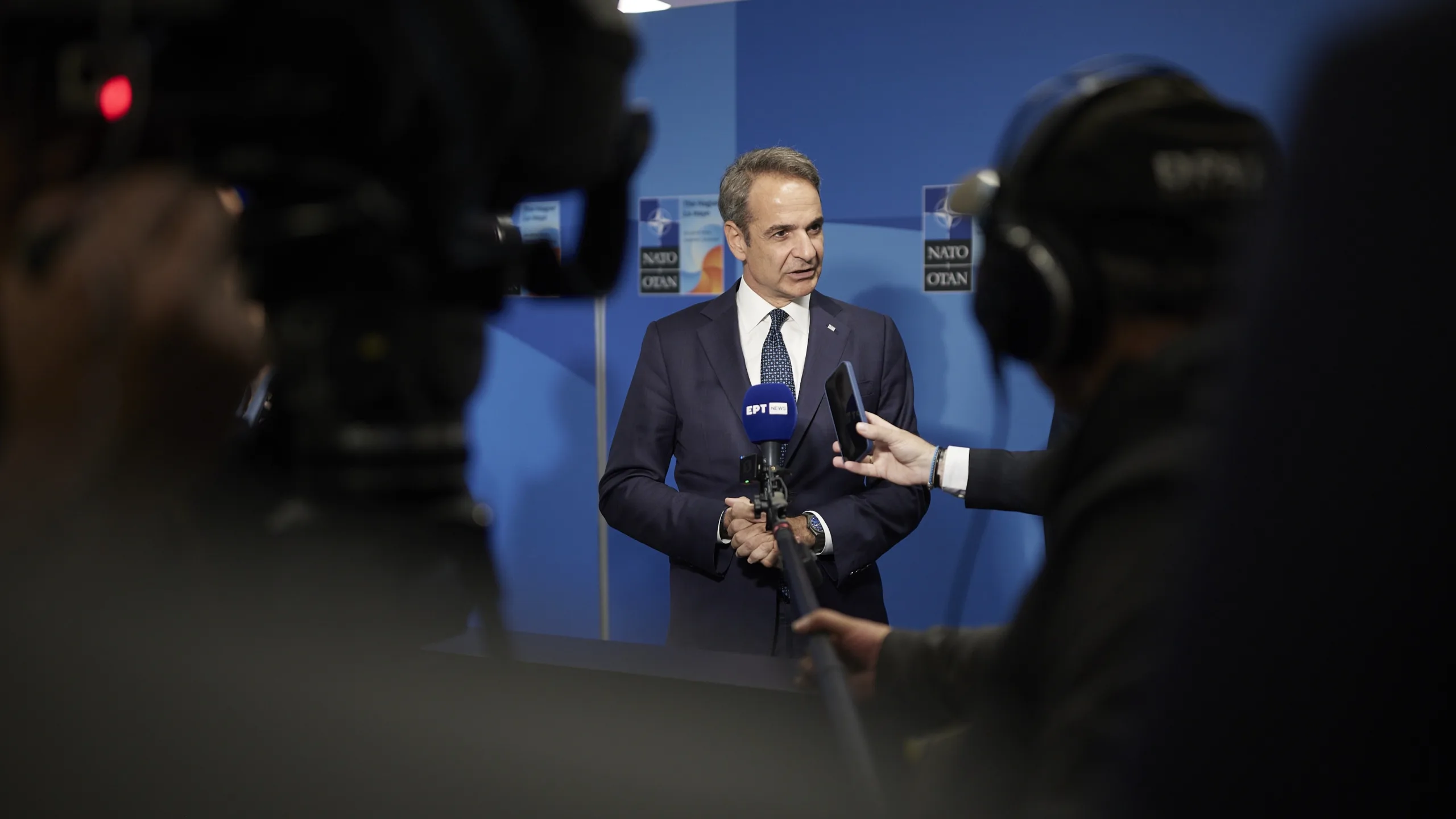Greek Prime Minister Kyriakos Mitsotakis has called for all NATO members to meet their defence spending commitments, warning against a culture of “free-riding” within the alliance.
Speaking as the NATO Summit began in The Hague, he stated, “The point of an alliance is to make sure that there is a fair burden-sharing and that there is no sense that certain countries are sort of free-riding on the defence commitment of other countries.”
NATO members agreed in principle on Sunday to raise their defence spending target to 5% of GDP, following a push by U.S. President Donald Trump. However, Spain indicated it could fulfil its obligations without reaching that level of expenditure.
Mitsotakis stressed that defence targets should be binding for all 32 member states. Greece currently spends around 3% of its GDP on defence – nearly double the EU average – and has requested that its 2026 defence budget be exempted from EU fiscal rules. The country aims to invest €25 billion by 2036 to modernise its armed forces and reach the 5% target by 2035.
He also emphasised that this defence spending would bolster Greece’s domestic military industry, stating: “Our aim is not to spend money that will go to partners abroad but to develop a domestic defence industry ecosystem.”
The issues of Turkey and Libya:
Mitsotakis further confirmed he had spoken with Turkish President Recep Tayyip Erdogan on the sidelines of the NATO summit, noting, “We raised the issues that we had to discuss, and we are waiting to find a date for the Greece-Turkey High Cooperation Council.”
He further clarified that Greece “does not redefine itself” in light of closer Turkey–US relations, adding that major summits should not be narrowly focused on Greek-Turkish issues.
Mitsotakis also addressed regional and global security concerns, calling for restraint and diplomacy in the Israel-Iran conflict and condemning a recent terrorist attack on a Christian church in Damascus. He reaffirmed Greece’s commitment to the NATO alliance, recalling that even during the financial crisis, Greece consistently met its 2% defence target while others fell short.
On the contentious Turkey-Libya maritime agreement, he reiterated Greece’s position that it is “unacceptable, illegal, and baseless” and said Athens would seek to have this stance reflected in the conclusions of the EU Summit beginning Thursday in Brussels.
Regarding increased migration flows from Libya to Crete, Mitsotakis said that Greece has taken specific measures, including plans to deploy naval vessels outside Libya’s territorial waters. He has also contacted European Commission President Ursula von der Leyen and urged cooperation with Libyan authorities to intercept or return migrant boats before they exit Libyan waters.
